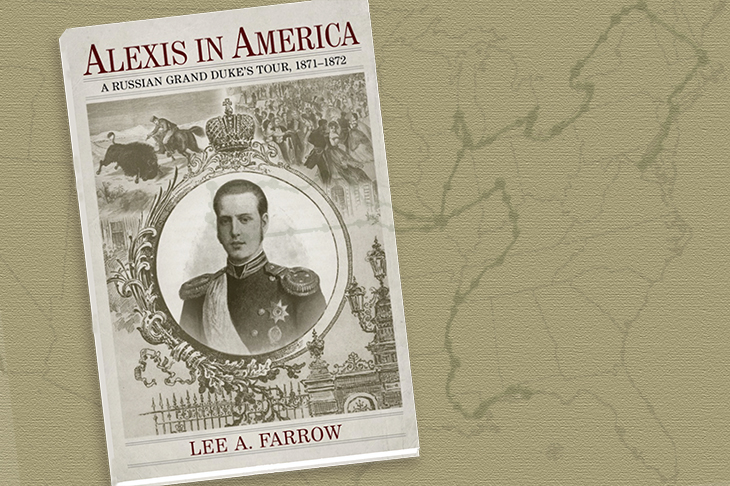A Russian grand duke's Mardi Gras tour

Alexis in America by Tulane history PhD graduate Lee Farrow gives a look back at Russian Grand Duke Alexis Romanov, who was a guest of honor at the first Rex parade during Mardi Gras 1872.
As the James Howard steamed down the Mississippi River to New Orleans, over 15,000 people lined the levees. The crowd strove to catch a glimpse of Alexis Romanov, the son of Tsar Alexander II and the first Russian royal to visit the United States.
Alexis in America, written by Tulane alumna Lee Farrow and published by Louisiana State University Press (2014), recounts the duke's progress through post-Civil War America culminating with his attendance at the Krewe of Rex"s first Mardi Gras parade in 1872.
The well-publicized journey began as a desperate attempt to convince young Alexis to abandon Alexandra Zhukovskay, the ill-suited mother of his unborn child. Though Alexis never forgot his lover, his trip was successful in other ways.
“The last stop was New Orleans, a romantic and complex city near the mouth of the Mississippi River, plagued by floods, fever and sticky, tropical heat,” wrote Farrow, who earned a PhD in history from Tulane in 1998.
The duke's visit provided an opportunity for the city to distinguish itself. Shortly before Alexis arrived, the newspapers announced that a self-proclaimed “King of Carnival” named Rex would be organizing that year's Carnival festivities.
A surging sea of mortals packed the sidewalks on Mardi Gras day to witness Rex"s processional of kings, peasants, harlequins and even a costumed replica of the duke himself. Meanwhile, Alexis smiled, clapped and raised his hat while watching the festivities from his seat next to the governor.
“Many credit his visit as the inspiration for the birth of Rex and the tradition of the daytime Mardi Gras parade,” said Farrow, noting, however, that little proof supports this supposition.
The grand duke quickly became intrigued by the city's European flair, yet he could never have imagined that his short visit would earn him a permanent place in the history of one of America's most treasured traditions.
Jamie Logan is a sophomore majoring in English, psychology and early childhood education at Tulane University.
